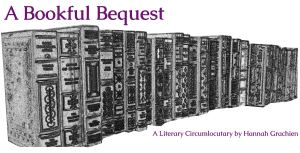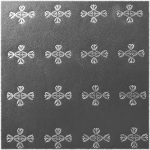Julia Peterkin, 1928
Pulitzer Prize, 1929

This book was revered at the time it received the Pulitzer Prize as unique in its truthful representation of African-American life in the South after the Civil War. I think the community in which the story takes place would be considered sharecroppers, though I’m not sure I know enough about it to say for sure. I love the voices of the characters, their dialects. A person’s voice, especially in a book, carries so much of his or her character. I also think the sense of community and the characters’ knowledge about how to live well are enviable. But it is a life of poverty, a life so uneducated that literacy itself is suspicious. The writing tempts one to think that there can be riches in a life of poverty – though speaking from my perspective of plenty, I dare not push this point too hard. However, I can certainly attest to the fact that certainty is more comfortable than uncertainty. Not knowing what to do can make one miserable.
In the book, Sister Mary struggles with two things, it seems to me. She struggles with despair, and she struggles with fear of damnation. Mistreated and abandoned by her husband, she suffers to self-neglect and almost to death. This husband was the man who first caused her to sin and to be rejected by the church, a monolith in the community whose perspective is controlled by a few men who are very willing to judge.
Ironically, perhaps, her way out of suffering, in the end, is sin. Employing a love charm she acquires to win her husband back, she fills her house with children by men who catch her fancy. She regains her health, works hard (extremely hard, by our standards), and raises them well. Her first son, who also leaves her, returns with his baby only to die, and, after nursing him to his death, she is approached by his spirit in a dream and told she may be cleansed by prayer; in the dream she prays until she is cleansed. She is able to go before the church then to tell her story, and, after a second baptism, she may be welcomed back to the fold and saved. But she refuses, at the very end of the book, to give away her charm.
So this is interesting. She truly loves one man, who leads her to sin and suffering. That’s perplexing, to be sure, but she is certain of one thing: hard work is cleansing. At one point, she says, “I like to sweat a plenty” and, elsewhere, “Fieldwork would soon keep the clear salty sweat dripping off her hot face and every thread of her clothing drenched from the skin out. … But sweating is good. Out of doors is good.” She finds her personal salvation, her relief from suffering, in hard work and sex and the children it brings. “But sin and Seraphine [her first child with a man other than her husband] agreed with her.” This is a kind of self-knowledge, a self-knowledge that works where collective wisdom – the church, salvation – fails her.
And, I’m thinking, her certainty grounded in that self-knowledge is almost complete. For, after postponing a prayer retreat urged upon her by Maum Hannah to gain salvation (“We [her and Budda Ben] is gwine to seek an ’pray in plenty o’ time. … I ain’ gwine to wait so much longer to repent – not so much longer.”), even when she finally comes before the church and can be saved once more, she keeps her charm. The charm, not the church, is her recourse of certainty, and her confidence in it is at least as strong as her need for salvation. So her salvation lies in knowledge of herself.
Would that worked for us all.

What is A Bookful Bequest? Read about Hannah Grachien’s Literary Circumlocutary
Coming soon: Margaret A. Barnes’ Years of Grace
